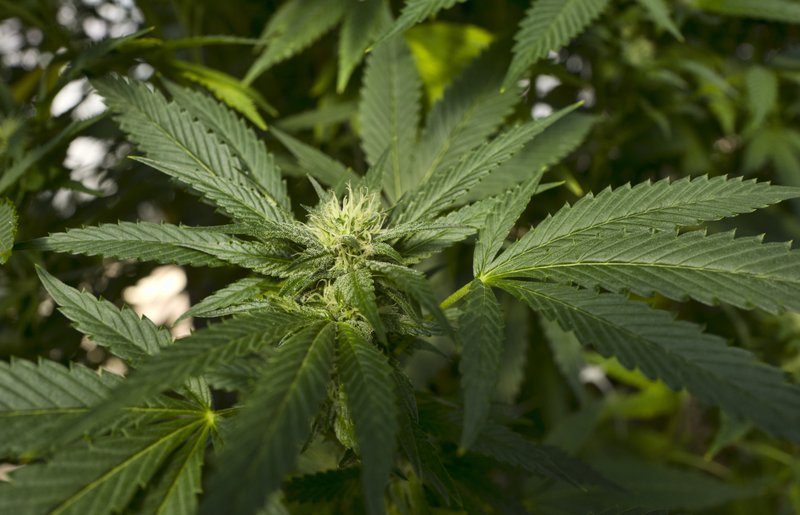The Arkansas Department of Health next month plans to begin issuing certifications to approved medical marijuana patients, freeing those patients to apply for temporary cards in other states, like neighboring Oklahoma, until the drug is available here.
Still, questions remain about whether patients in Arkansas can legally use cannabis purchased in another state.
The Health Department initially planned to issue the cards about 30 days before the first dispensary is to open in Arkansas, but agency spokesman Meg Mirivel said the department decided to issue the cards 30 days after the Arkansas Medical Marijuana Commission's meeting next Wednesday.
Mirivel said the agency had received numerous inquiries on the matter from registered patients after the rollout of Oklahoma's medical marijuana program.
She also noted that the licensing process for cannabis cultivators and dispensaries in Arkansas has made significant progress. State regulators expect medical cannabis to be available in Arkansas in April.
At next week's meeting, the Medical Marijuana Commission will review a consulting firm's scores of the 200 applications for the 32 dispensary licenses. The board could then vote to accept the consultant's grades and begin issuing the selling permits. The commission last year picked five firms to grow the product that will be sold by dispensaries.
As of Friday, 6,743 patients had been certified to have one of 18 qualifying conditions for a medical marijuana registry ID card.
However, Melissa Fults, a patient advocate, cautioned that the Health Department's announcement may not be as beneficial to eager patients as they might expect. She noted that patients planning to purchase cannabis from Oklahoma and bring it back to Arkansas for use will commit a federal crime when they cross the state line. Possession of cannabis remains federally illegal to possess.
But David Couch, the Little Rock attorney who drafted the 2016 constitutional amendment that legalized medical marijuana in Arkansas, said Wednesday's announcement should be welcomed by patients and that the criminal risk is more theoretical than practical.
"I would go for it," Couch said. "Are they going to patrol the border between Arkansas and Oklahoma? I don't think so."
Couch also noted that a federal provision bars U.S. government authorities from expending resources to prosecute marijuana-related crimes in states where possessing and using the drug is legal.
Scott Hardin, a spokesman for the Arkansas Department of Finance and Administration, which includes the Medical Marijuana Commission, said patients cannot legally bring medical cannabis from other states here because the commission's rules state that the product must be purchased at an Arkansas dispensary.
However, Couch said the commission doesn't have the authority to set a rule like that. The commission's authority is strictly over licensing of cultivators and dispensaries.
The panel doesn't have authority over patients or where they purchase their products, he said.
Amendment 98 to the Arkansas Constitution passed in 2016, but legal and regulatory delays have stalled the drug's debut in the Natural State.
The five companies selected to grow cannabis weren't issued licenses until July, and they're currently constructing greenhouses.
Oklahoma, which legalized medical cannabis in June, saw its first dispensaries open for business in October. Patients from other states may apply in Oklahoma for temporary licenses to buy, possess and use medical marijuana there, but a patient must provide proof of certification in his home state.
Fults said this could be beneficial for Arkansas patients who live in the western portion of the state, but she warned of the dangers of transporting the drug back to Arkansas.
"As much as we all want our medicine, we cannot take it across state lines," Fults said. "That's a federal crime, and that's bad."
Most of the approved Arkansas patients live in the most populous regions of the state -- in central and Northwest Arkansas.
The cards are valid for up to one year, and each costs $50 to apply for and renew. To obtain a card, a patient must have a doctor certify that the patient suffers from a qualifying condition.
Metro on 01/03/2019
